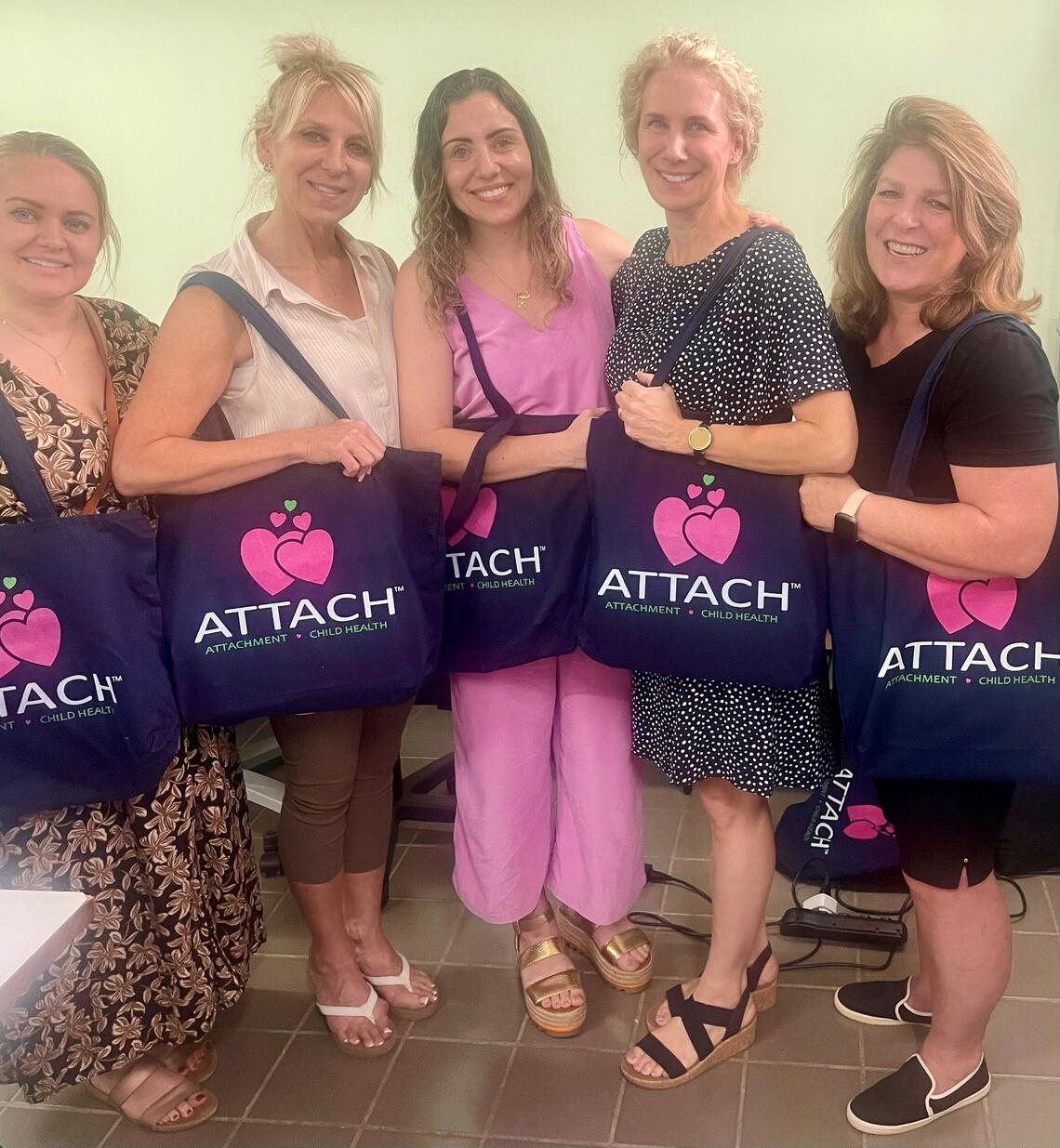Feb. 23, 2024
UCalgary-created family intervention program reaches international audiences


From left, Joanna Piekarski, Martha Hart, Franciele Marabotti Leite, Nicole Letourneau and Virginia Xavier.
It is well accepted in most areas of the world that the quality of any parent-child relationship is negatively impacted by family violence, depression and low income, affecting a child’s mental health development and their adult life. Now Denmark and Brazil can take advantage of a groundbreaking intervention program, co-created by UCalgary Nursing professor Dr. Nicole Letourneau, RN, PhD, and research associate Dr. Martha Hart, currently in use across Canada.
The ATTACH (Attachment and Child Health) program was developed and evaluated as an effective intervention tool for families affected by toxic stress (family violence, parental depression, poverty).
“We are now scaling in Brazil with Dr. Franciele Marabotti Liete of the Federal University of Espirito Santo and we just received a million dollars CAD to adapt and test it in Denmark with Dr. Johanne Smith-Nielsen of the University of Copenhagen,” says Letourneau. “There has long been global interest and so we are very excited about this next phase to scale ATTACH internationally.”
ATTACH uses parental reflective function (RF) as a fundamental component. RF is the ability to understand one's own and a child's thoughts, feelings and mental states, promoting strong parent-child relationships and buffering the effects of early adversity through strengthening the social and emotional competence of parents in their interactions with their children.
In Brazil, psychological, physical and sexual violence against women is widespread with most violence against women occurring in the home, explains Letourneau.
“Child neglect is also prevalent in Brazil and COVID-19 only worsened these issues. With the translation of ATTACH materials into Portuguese and the training of ATTACH facilitators last October, the program will be delivered to 30 families in Vitoria, Espirito Santo, Brazil in 2024.”
Current parenting interventions used in the Danish municipalities often lack a solid evidence base and fall short in addressing the complex needs of families facing toxic stress. In Denmark, ATTACH will be translated into Danish, adapted, implemented and evaluated with four Danish municipal family intervention units.

From left, Nicole Letourneau, Joanna Piekarski, Franciele Marabotti Leite, Mayara Alves, Martha Hart and Virginia Xavier in Brazil.
“We know ATTACH offers promising results for some of Denmark’s most vulnerable families,” Letourneau says, adding that tailoring the program to local contexts and using a collaborative multi-sectoral approach can only help bridge the health inequality gap and ensure that every child, irrespective of their background, has the foundation they need to thrive. The team is also developing a train-the-trainer model to facilitate sustainability over time.
“Many existing parenting programs are designed for a narrow group — say, parental depression or addiction, not both. ATTACH is designed to help families with complex problems by targeting rapid learning of RF skills via practice and supporting parents’ own reflection and emotion regulation,” she continues.
“This improves their ability to provide a less stressful and more nurturing caregiving environment for their child even in the context of multiple stressors. Research consistently shows that high RF can serve as a protective factor and buffer against the negative effects of early adversity and can help break the cycle of intergenerational transmission of adversities.”




